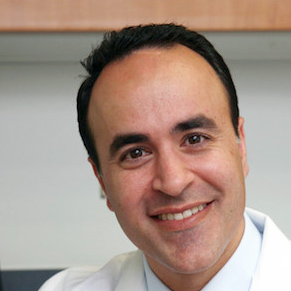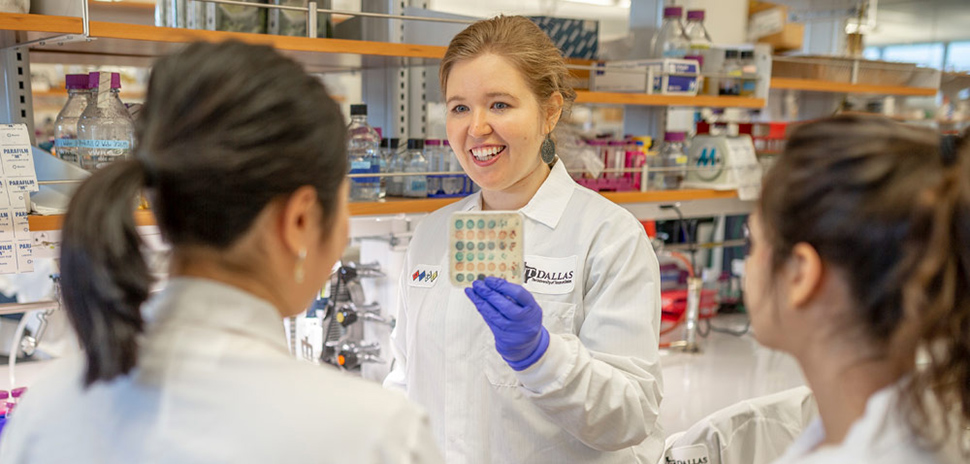![]() Every week, we do a little research of our own. We’re looking for scientists, professors, engineers, entrepreneurs—anybody, really—engaging in research and development across North Texas.
Every week, we do a little research of our own. We’re looking for scientists, professors, engineers, entrepreneurs—anybody, really—engaging in research and development across North Texas.
There’s plenty of good work being done. If you want to put R&D under your microscope, sign up for our e-newsletter.
UTA researcher studies how we interact with technology for learning, problem solving
The Boeing Co. has given a University of Texas at Arlington psychology professor a grant to construct an integrated data infrastructure that will centralize digital learning and engagement.

George Siemens
The goal of George Siemens’ work is to enable a deeper understanding of both learning environments and the personalized learning frameworks that workers will need to prosper, UTA said in a release.
Siemens said his research seeks to determine how people interact with technology as a cognitive peer to build knowledge and solve problems in both corporate and higher education environments.
“Technology is no longer something we just use. It has become something that thinks with us,” Siemens said in a statement. “That changes almost all aspects of the learning system. We’re trying to understand what the impact of cognitive technology, or artificial intelligence, is on the human knowledge development process.”
He will use the data from the eight-month project to visualize learning patterns and discern student engagement patterns of course materials at institutions such as the Massachusetts Institute of Technology and Indiana University, as well as in professional development at The Boeing Co.
Blood donation programs key to identifying those with genetic cholesterol condition
Blood donation programs may pose a unique opportunity for physicians to screen for diseases such as familial hypercholesterolemia (FH), a genetic condition that causes extremely high levels of cholesterol at an early age.

Amit Khera
That’s the conclusion of a study by a UT Southwestern team led by principal investigator Dr. Amit Khera, a professor of internal medicine.
Estimates say that up to 1.2 million people in the U.S. have FH, and identifying one person with the condition allows for other family members to be identified. UTSW says roughly 10 percent of those with FH are diagnosed, and that leaves many others at risk.
“For someone with FH, the risk of heart disease is higher because their clock started early. They’ve been bathed in high cholesterol since birth. At the same time, they may not know their kids are at risk,” Khera said in a statement. “Sometimes by identifying one patient with FH, we find as many as eight or 10 more family members who are at risk.”
Khera’s study, published in JAMA Cardiology, says blood donation programs could serve as a public health portal because roughly 6.8 million people nationwide donate blood annually.

Dr. Nicole De Nisco, assistant professor of biological sciences, center, and members of her lab study the bacteria involved in recurrent urinary tract infections in postmenopausal women. [Photo: UT Dallas]
UT Dallas, UTSW research recurrent urinary tract infections
A new study from researchers at The University of Texas at Dallas and UT Southwestern Medical Center has found several species of bacteria live in bladder tissue of postmenopausal women who experience recurrent urinary tract infections (RUTIs).
That could lead to more effective treatment strategies for RUTIs, which are irritating, painful, and sometimes debilitating, UT Dallas said in a release. Most UTIs are caused by the bacterium Escherichia coli, which normally lives in human intestines but can get into the urinary tract.The results represent the first systematic analysis of biopsies from patients in this population, and the findings offer a better understanding of the interaction between bacteria and host tissue.
While most infections occur in women and can be treated with antibiotics, some postmenopausal women suffer recurrent UTIs so often they become a chronic condition. That requires daily doses of increasingly powerful antibiotics and the infection-causing bacteria gradually become resistant to each new drug.
“For older women, these infections can go on for tens of years,” said Dr. Nicole De Nisco, assistant professor of biological sciences at UT Dallas and lead author of the study. “Eventually, a patient’s last resort might be removing the bladder.”
You can find out more about the research here.
READ NEXT
![]()
Get on the list.
Dallas Innovates, every day.
Sign up to keep your eye on what’s new and next in Dallas-Fort Worth, every day.

































































